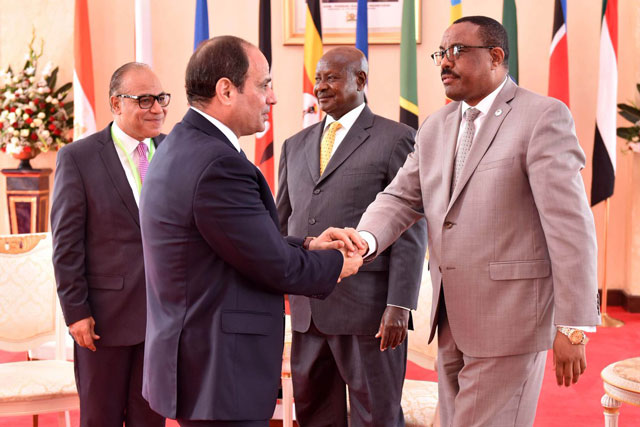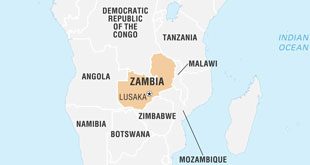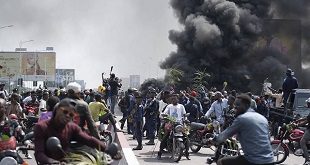
“The risk of catastrophic ethnic clashes is real,” said longtime independent Ethiopia researcher Rene Lefort.
“The state of emergency could be a necessary response to this risk. But it will only add fuel to the fire if it’s interpreted only as an upgrade of [the] repression.”
– Who will become PM? –
The EPRDF came into power in 1991 as a rebel group that overthrew dictator Mengistu Haile Mariam of the communist Derg junta.
Rebel leader Meles Zenawi of the Tigrayan ethnic group ruled from 1995 till his death in 2012. It led to the perception that the ethnicity, which makes up about six percent of the population, was wielding total control over a nation of more than 100 million.
Hailemariam, from the Wolayta minority in the country’s south, was Meles’s appointed successor, though speculation abounds about whether the Tigrayan People’s Liberation Front (TPLF) still remains the dominant member of the EPRDF coalition, as it was for years.
Were one of the TPLF’s own to take power, it could enrage protesters.
“If TPLF is using its opportunity to bring someone who wants to maintain the status quo by leveraging the military, that would be devastating,” the analyst said.
Being the largest ethnicity with about 35 percent of the population, Oromo activists are particularly insistent that the next prime minister be one of their own.
– What does it mean for Ethiopia? –
Whoever takes over will face a daunting task of keeping the EPRDF together and continuing the country’s streak of rapid economic growth.
New industrial parks, train tracks and roads have sprung up across the country in recent years, but the protesters complain jobs remain scarce.
Last October, Ethiopia devalued its currency by 15 percent in a bid to boost its export competitiveness, but foreign exchange remains in short supply, slowing down business.
Ethiopia researcher at Amnesty International Fisseha Tekle said the newfound prosperity would be imperilled if the incoming prime minister doesn’t hold security forces to account and revise laws that have been used to prosecute political activists and journalists.
“All these steps should be taken to stop the situation from spiralling into a complete breakdown of law and order,” Fisseha said.
 The Independent Uganda: You get the Truth we Pay the Price
The Independent Uganda: You get the Truth we Pay the Price


